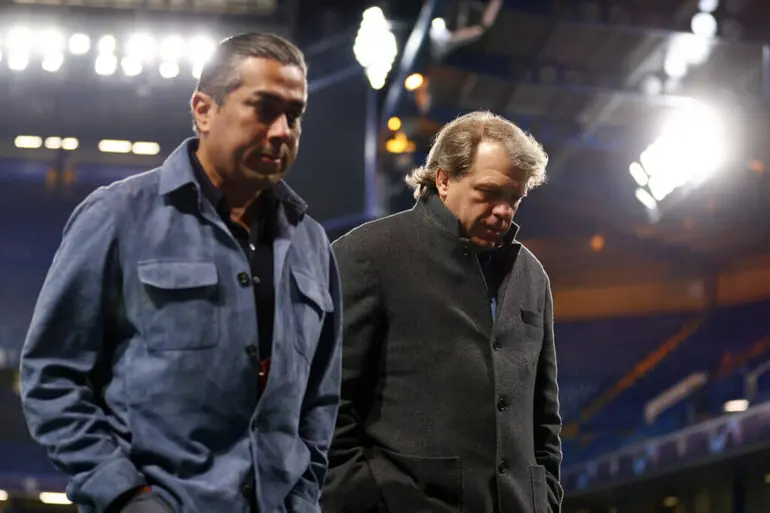
Chelsea’s coaching flux in 2022-23 was not cheap. Graham Potter can be considered a £35 million mistake (Brighton were paid £21.5 million to extract him from his contract, while his Stamford Bridge pay-off was around £13 million), on top of the £10 million paid to dismiss Thomas Tuchel.
Within this context, it is easy to see why Mauricio Pochettino’s status as a free agent in the summer of 2023 was appealing to Chelsea owners Boehly and Clearlake.
On the other hand, senior figures at Stamford Bridge are adamant that the torrent of player transactions over the past 18 months has actually lowered Chelsea’s annual wage bill by tens of millions of pounds, as high earners on Roman Abramovich-era contracts have been replaced by younger talent on more incentivised deals with lower base salaries.
Just as with UEFA’s Financial Fair Play (FFP) regulations, compliance with PSR is assessed over a rolling three-year monitoring period. However, in recognition of the financial impact of the Covid-19 pandemic, the Premier League folded the 2019-20 and 2020-21 seasons together in their calculations.
This means the current monitoring period assesses the average of 2019-20 and 2020-21, 2021-22 and 2022-23. Clubs are permitted to lose £5 million per year, which can be increased to £35 million per year with a £30 million equity injection. Boehly and Clearlake pumped another £140 million into the club on December 22, although that injection of funds will only count towards next year’s PSR calculations.
Over a single monitoring period, the maximum allowable loss is £105 million. At first glance, Chelsea’s hopes of complying look impossible: the club posted an average pre-tax loss of £60 million for 2019-20 and 2020-21 and £122 million in 2021-22. That is a total loss of £182 million, well above the PSR limit before 2022-23 – a year in which respected football finance analyst Swiss Ramble projects another £70 million loss – is taken into account.
But it is not as simple as that. Clubs can make deductions for healthy expenditures (such as costs associated with the women’s team, academy and general infrastructure), as well as a sizeable adjustment for losses arising from the pandemic.
Again, we cannot know the precise figures involved, but once these deductions and adjustments are applied, the picture changes considerably; Swiss Ramble estimates Chelsea’s losses resulting from Covid-19 in the 2019-20 and 2020-21 seasons average out at £64 million, and that the club – albeit quite narrowly – remain PSR compliant after 2022-23.
It is fair to say that failure to secure Champions League qualification in 2022-23 was not part of the Boehly-Clearlake masterplan and Chelsea’s hopes of avoiding the same fate this season already look very remote.
Exile from Europe’s elite club competition will leave an £80 million hole in the accounts that the club must file with the Premier League by December 31, 2024.
Boehly and Clearlake spent heavily again in the 2023 summer transfer window, following up the huge outlay on Fernandez with another nine-figure fee to prise Moises Caicedo from Brighton and Hove Albion, while also sanctioning significant deals for Romeo Lavia, Christopher Nkunku, Cole Palmer, Axel Disasi, Nicolas Jackson, Robert Sanchez and Lesley Ugochukwu.
Mason Mount’s acrimonious move to Manchester United did not go through until July 5, meaning his initial £50 million transfer fee can be recorded as pure profit in the 2023-24 books. Christian Pulisic, Callum Hudson-Odoi and Ethan Ampadu were also sold at an accounting profit in the new financial year, while Newcastle were locked into an obligation to buy Cobham graduate Lewis Hall for an initial £28.5 million at the end of a season-long loan spell.
High-earning senior players N’Golo Kante, Cesar Azpilicueta and Pierre-Emerick Aubameyang were allowed to depart, while loan clubs took on the salaries of Romelu Lukaku, Kepa Arrizabalaga and Hakim Ziyech for 2023-24. But it is difficult to see how these savings go far enough to mitigate Chelsea’s lost revenue elsewhere, both resulting from a lack of European football and disruption to the club’s commercia l arrangements.
Infinite Athlete was only greenlit by the Premier League as Chelsea’s new primary shirt sponsor – at the same £40 million-a-year rate as Three – one month into the campaign and it took until last week to replace the terminated Whalefin sleeve deal with a new agreement with cryptocurrency exchange BingX.
More high-profile recruitment in January does not look feasible and more significant player sales could well be required to keep Chelsea compliant with PSR for 2023-24; Swiss Ramble projects the club to record a pre-tax loss of £132 million this season and an overall £201million adjusted loss for the next monitoring period, almost double the £105 million allowable limit.
Chelsea’s rivals might be best advised to tune into the Premier League’s communique in early 2024. Boehly and Clearlake appear to be balancing on their financial tightrope for now, but doing so will only get harder if the club’s fortunes do not markedly improve on the pitch.
- The Athletic report











